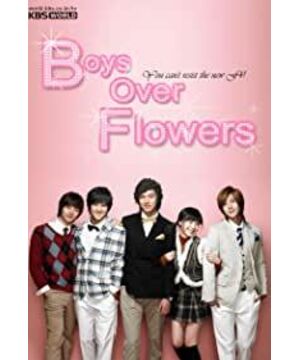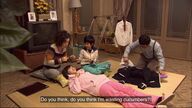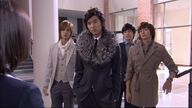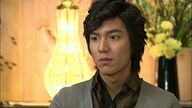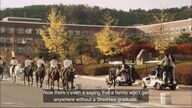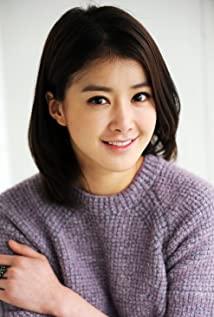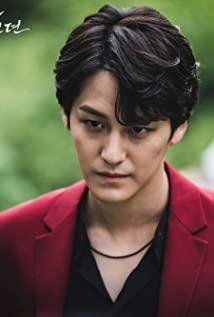In the state where my girlish feelings are gradually sprouting, it is about the second year of junior high school. Finally there is the intrusion of the Taiwan version of "Meteor Garden". When I'm infatuated, I don't even want to eat dinner. It can be seen that the idol drama that I came into contact with for the first time in my life was so unreasonable. The TV station is always harshly cutting an episode into countless sub-episodes, interspersed with a wide variety of advertising rosters. Later, it was suspended due to the "non-violent" instructions of the State Administration of Radio, Film and Television. After that, I finally thanked the power of piracy, and just scraped together enough money to buy pirated VCDs. Seems like this is the craziest I've ever been. Now that I am no longer easily excited, every time I think about it, I always sigh: I was still young.
The Japanese version of Boys Over Flowers was the only one that ran through my entire high school and college. Under the heavy pressure of Gao, I was able to sneakily watch the first film of Men Over Flowers twice, and I still admire how I escaped the clutches of my parents' surveillance. This trend has continued into the university. From "Boys Over Flowers Part II" to the final version released in the summer of 2008. It
's the Korean version of Boys Over Flowers that has been ghosted these days. It's all Ah Qian's fault. It got out of hand after it was passed on to me for the first episode. So, after watching the fourth episode, I have to go through this torment of waiting for two episodes a week.
-------------------------------------------------- ----
It seems that removing girlish feelings is not something that can be done overnight, or I just have no immunity to the "Boys Over Flowers" series. In short, whether it's a manga or a Taiwanese version or a Japanese version or the latest Korean version, as long as everything related to this story will arouse my great interest. I even wanted to download the earliest Japanese version of Boys Over Flowers, but unfortunately I can't find it for a long time. I once also wanted to ask myself weakly: Is it a little crazy?
The more you see, the more you have comparisons. Big S's Shancai seems to have a stronger temperament, while the Shancai on Zhenyang's neck is really pure and pure. She seems to be her favorite Shancai, while Gu Huishan's Shancai has an indescribable sense of strangeness, maybe it's just the beginning. The audience hasn't fully embraced it yet.
Jerry Yan's version of Daoming Temple seems to be a bit soft. In my understanding, the Daoming Sisi should be somewhat domineering. However, the childish aspect is just right, but the acting is a bit jerky. And Matsumoto's version of Daomingji, I think it is the best one of these. Domineering and childlike are just right. It's just that when Junichi Matsumoto came on stage, it really surprised me, a bit like Michael Jackson after plastic surgery. Now I believe that the power of acquired hard work is still extremely powerful. After watching the three Japanese versions of "Boys Over Flowers", in the end, the more I look at him, the more pleasing to the eye. Li Minghao's version of Daoming Temple feels that his face shape and so on are very similar to Jerry Yan. I suspect that the Korean version of Daoming Si Si was chosen based on Jerry Yan's appearance. It's just that Li Minghao with curly hair looks a bit old-fashioned.
As for the flowers. Zhou Yumin is more like the melancholy prince who came out of the original work. It's no wonder that after watching the Taiwan version and the Japanese version, Kamio Yezi said that he liked the Taiwan version of Hanazawa and Japan's Daoming Temple. Oguri Shun's version of Hanazawa himself likes it very much, although Oguri Shun's performance of Hanazawa always feels that something is missing. But it's because Oguri Shun is so much like someone in my life that I'm falling in love with him. And Kim Hyun Joong's Korean version of Hua Ze class, I feel that the appearance is a bit lacking, but the degree of melancholy is still great.
Zhu Xiaotian's Simon is a bit bookish. The Japanese version of Simon is aristocratic. As for Kim Bum's Korean version of Simon, to be honest, the first thing I saw when I saw the Korean version was Kim Bum. Bad, but looks like a gentleman.
Wu Jianhao's beautiful works are the one that influences the temperament of music. The beautiful work played by Hercules seems to be the least aristocratic of the three, but the first time I saw the Japanese version of Boys Over Flowers, it turned out to be the beautiful work. Legend has it that the Ministry of Power is from Northeast China, and it is estimated that there is still some kind of heart-to-heart in the subconscious. As for Jin Jun's beautiful work, I can't say what I feel now, because the Korean version of "Boys Over Flowers" only has four episodes.
In terms of storylines, all three have a lot of changes from the original. The Japanese version is probably the most comprehensive ending of the film. In the final movie version, I still feel very happy to see that Daoming Si and Shancai got married. And the Korean version that is currently being released has even changed the character names. I am afraid that South Korea, which is good at TV drama scriptwriting, just wants to add some Korean drama characteristics to it, and I just hope that there will be no more vulgar scenes such as terminal illness and death.
Counting my fingers, it has been exactly ten years since I fell in love with Men Over Flowers, which has taken up half of my current life. From elementary school all the way to the present, I have gone through my stupidest childhood, the most chaotic teenager, and the youth connecting to the future. Suddenly I thought of Liu Bannong's poem "How Do I Miss Her". It is a story that has accompanied me for ten years. How can I miss her!
View more about Boys Over Flowers reviews


